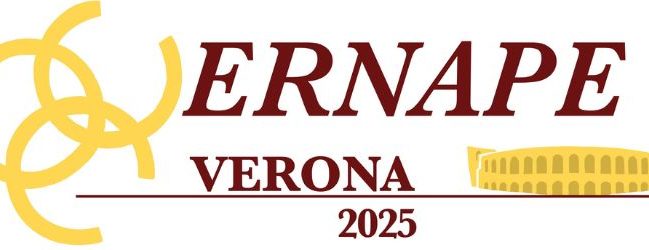Where can I best stay overnight in Verona? How do I get from the airport or train station to the hotel? Here we have collected some practical information to ensure that you have a pleasant stay and a good conference in Verona.
Conference location
The conference will occur at the Department of Human Sciences at the University of Verona.
Registration
The registration desk is open on all days of the conference and is located in the Yard on the ground floor of the Polo Didattico Zanotto Building.
Presentations
Paper presentations – Each presentation lasts a maximum of 20 minutes (except for session 3b, which has less time per presentation (15 min.)). After each presentation there will be time for questions (10 minutes). The chairs will be asked to adhere to the time strictly. Bring a USB stick or your own laptop.
Posters – Posters presenters are asked to put up their posters 15 minutes before the start of their session. Poster presenters will be asked to present their poster in maximum 10 minutes). After the presentations of the posters the audience can study the posters in detail and discuss the posters with the presenters.
Symposium – The symposium organizers can set-up their own time schedule for their presentations and discussion. The chairs and all presenters are asked to be in the lecture hall 5 minutes before the start of the session.
About Verona
Verona is an enchanting little old town with many cultural heritage spots to visit, and where you can enjoy some delicious Italian food. It has 258 098 inhabitants, and it is situated in the north-eastern part of Italy.

“Verona city center is part of the Unesco protected sites. The city is situated in northern Italy at the foot of the Lessini Mountains on the River Adige. It dates from prehistoric times: a small built-up area that developed between the 4th and 3rd century BCE became a Roman municipium in the 1st century BCE after which it rose rapidly in importance. During the 5th century, Verona was occupied by the Ostrogoth Theodoric I, later by the Lombards, and in 774 by Charlemagne. In the early 12th century, it became an independent commune. It prospered under the rule of the Scaliger family and particularly under Cangrande I, falling to Venice in 1405. From 1797, it became part of the Austrian Empire and joined the Kingdom of Italy in 1866. The core of the city consists of the Roman town nestled in the loop of the river containing one of the richest collections of Roman remains in northern Italy. Surviving remains of this era include the city gate, Porta Borsari, the remains of the Porta Leoni, the Arco dei Gavi, which was dismantled in the Napoleonic period and rebuilt next to Castelvecchio in the 1930s, the Ponte Pietra, the Roman theatre, and the Amphitheatre Arena.
The Scaligers rebuilt the walls during the Middle Ages, embracing a much larger territory in the west and another vast area on the east bank of the river. This remained the size of the city until the 20th century. The heart of Verona is the ensemble consisting of the Piazza delle Erbe (with its picturesque fruit and vegetable market) and the Piazza dei Signori, with historic buildings that include the Palazzo del Comune, Palazzo del Governo, Loggia del Consiglio, Arche Scaligere, and Domus Nova. The Piazza Bra has a number of buildings dating back to different epochs. Verona’s surviving architecture and urban structure reflects the evolution of this fortified town over its 2,000 year history.”
(Source: https://whc.unesco.org/en/list/797/)
Municipality site for tourists: http://www.turismoverona.eu/nqcontent.cfm?a_id=35646&lang=en

The University
The University of Verona strives for excellence in teaching, research and innovation. It has 22,000 students and 1,500 staff including lecturers, researchers, technical and administrative personnel who work to continually improve and grow the university.
A forward-thinking institution which continuously seeks to strengthen the link between its degree courses and the real world of work, the university’s main objective for the near future is to become progressively more welcoming and adapted to student needs.
Department of Human Sciences
Overview
The Department of Human Sciences produces highly quality cultural and academic teaching and research for the national and international academic community and the cultural context in which it operates. The Department of Human Sciences is organised in such a way as to make full use of its available resources, allowing all department staff (professors, researchers and young academics) to pursue their research interests using suitable tools (including organisational and financial) to carry out and publish their studies. A strong proponent of transdisciplinary research, the Department encourages collaborations and interrelations among all its faculty, especially for the purpose of discussion and comparison in order to produce more solid academic work. In addition to its excellence in research, the Department of Human Sciences actively supports third mission activities, which allow it to become involved in the cultural life of the community and play a role in fostering the professional, social and political development of society. Faithful to its mission as a public university structure, the Department aims to sustain the cultural development of the country, offering young professionals (philosophy experts, educators, trainers and pre-school and primary school teachers) a high level of skills with which to efficiently navigate the world of work and society in general. For more info: https://www.dsu.univr.it/?ent=home&ent=home&page=dipartimento&lang=en

Accommodation
Verona offers a wide range of accommodation. There are several options located near the city center ranging from more luxurious to more modest.
Suggested Hotels in Verona:
- Hotel Torcolo**
- Hotel Mastino***
- Hotel Marco Polo***
- Hotel Europa***
- Hotel Aurora***
- Hotel Verona***
- Hotel Bologna***S
- Hotel Milano***S
- Opera Relais De Charme – Aparthotel****
- Hotel Leon d’Oro****S
- Hotel Gabbia D’Oro*****
Suggested B&B in the centre of Verona:
- Palazzo Gelmi
- Giulietta e Romeo
- B&B Forever
- B&B OPERA PRIMA
- B&B Magnolia
- Bed and Breakfast Cangrande
- Residenza Borsari
- B&B King Verona
- B&B Mela
More options
See booking.com, AirBnB or other locations nearby Verona city centre.
Travel Information to Verona
The venue is very well accessible from multiple airports, by train and by highway. How to reach Verona:
By train
- Train station – Verona Porta Nuova – City center
Verona Porta Nuova train station is a major cross-junction station and is located in the south of Verona city center. Around 300 trains pass by its 12 platforms every day, and Verona can be reached via direct, national and international routes, with high-speed trains available too. Bologna to Verona is a 50-minute journey, Venice to Verona takes 1 hour, whilst Milan to Verona is just 1 hour 15 minutes. From the station, visitors can walk to the center in 20 minutes. Buses and taxis are also available, and they are particularly convenient for passengers with a lot of luggage. Verona airport, on the other hand, can be reached in around 15 minutes from the Verona Porta Nuova train station, thanks to buses running at 20-minute intervals throughout the day until midnight. Although smaller, the city is also served by a second train station in the east, called Verona Porta Vescovo.
By car
Autostrada/Highway A4 (Milano/Venezia – exit at Verona Sud) or the A22 (Autostrada/Highway Brennero-Modena – exit Verona Nord).
By bus
The best choice to reach the Verona city center is to check the Flixbus website for direct connections from Milan-Venice-Bologna Airports.
By plane
Verona city center is well connected to the main airports placed in Northern Italy. Below we report some info about them:
- Verona Catullo Airport – Verona (distance from Verona city center 12 km)
- Milano-Bergamo Airport – Bergamo (distance from Verona city center 117 km)
- Malpensa Airport – Milan (distance from Verona city center 201 km)
- Milano Linate Airport – (distance from Verona City center 150 km)
- Marco Polo Airport – Venice (distance from Verona city center 124 km)
- Bologna Airport – Bologna (distance from Verona city center 196 km)
Taxi
Call a taxi for a fast service to Verona Airport. The taxi rank can be found at the exit of the Arrivals Terminal.
Go to the taxi page
Aerobus
The Verona Airport is connected to the Verona Porta Nuova train station via a Shuttle/Aerobus. This service runs every 20 mins.
How to get around in Verona
By train
Trains run from Verona Porta Nuova train station to Verona Porta Vescovo train station. Porta Vescovo train station is within walking distance of the university.
Public transport card
If you wish to use public transport, it will be the most convenient option for you to check fares and tickets here.
Bicycle
The University of Verona has different indoor and outdoor bicycle parking facilities. These facilities are found in or near each building on campus.


